- Home
- slideshows
- miscellaneous
- I'm a liberal who moved to a conservative town - here are the most shocking things I discovered about how conservatives see the world
I'm a liberal who moved to a conservative town - here are the most shocking things I discovered about how conservatives see the world
I shot a gun for the first time in small-town Georgia — and realized why guns are such an emotional issue for conservatives

You won't change anyone's mind on Obamacare, but there's curious wiggle room when it comes to the state's role in healthcare.
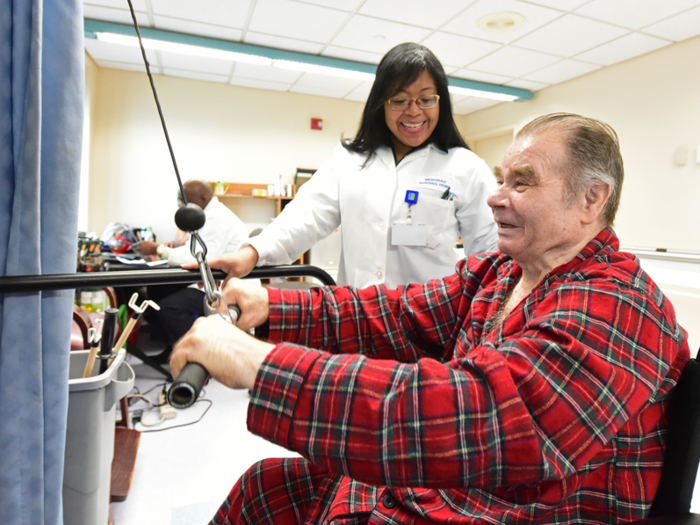
Living in small-town Georgia made me realize something about the national healthcare debate that I had misconceived before.
Before, I assumed conservatives thought that when it came to healthcare, the government should never mess with private markets. Instead, I learned that conservatives just want the federal government to stay out of healthcare.
State intervention, on the other hand, is still up for debate.
This was once made especially clear to me when a legislator explained his outrage that health insurers were only willing to cover certain types of chemotherapy, and not others. His solution was to pass a law mandating insurance companies to cover all forms of chemotherapy in the state.
I thought this was a curious stance, given his steadfast opposition to Obamacare, a hallmark of which are mandates requiring insurers to cover more procedures and people than they otherwise care to.
But I realized that this stance came down to a distrust of federal intervention — not a blind trust in the profit-first mindset of private insurance companies.
I still think it's wrong for states like Georgia and others to refuse federal funds that would expand access to Medicaid for hundreds of thousands.
But at least I see now that there are more guiding principles driving their decision-making, and not a petty desire to undermine Obamacare.
Speaking of Obamacare, businesses in my conservative town weren't afraid to broadcast their views on it in public
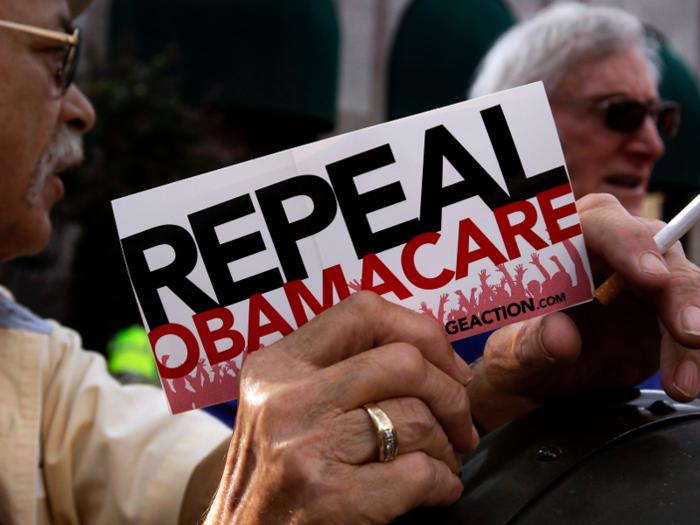
Businesses definitely felt empowered to express their views on a number of political issues, given how deeply conservative the area was.
There was a Subway close to the courthouse that I went to often. I remember one day a printed sign appeared taped to the clear case enclosing the toppings station. The sign was offering an apology for the new upcharge to add cheese to a sandwich — thanking Obama and the Affordable Care Act for the increase.
In addition to being a funny instance of the "Thanks, Obama" meme before it took off, it struck me as something that would be framed differently in a more liberal zip code.
Much of the South is more diverse and integrated than wealthy liberal places
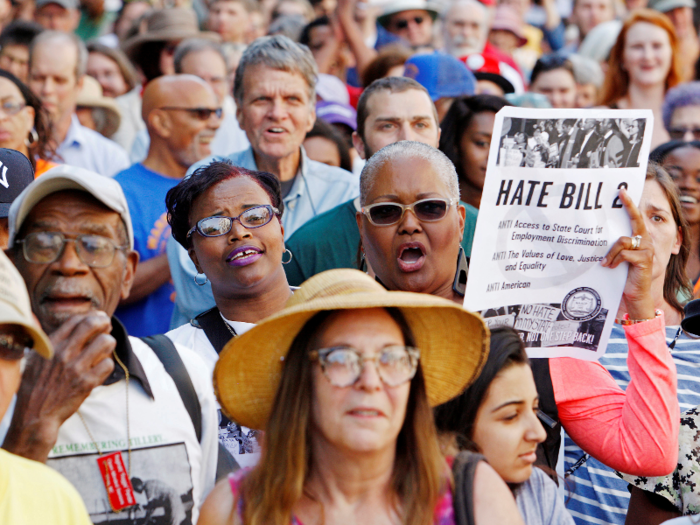
There is a perception that in the South, particularly in the small towns, everyone walks around openly racist.
Not to make excuses, but in reality, you see less of the sort of brazen racism and xenophobia than you might expect given media portrayals of the region.
A lot of that is the product of diversity. If you grew up in Gainesville, Georgia, the people you sat next to in school, work with, have your hair cut by, were coached by — the list goes on — are way more likely to be people of another race than they would be in many liberal enclaves.
That doesn't mean there wasn't racism at all. But there was a widespread belief that institutions didn't cause, and were powerless to stop, the racism and inequality that was rampant in Gainesville.
This was especially true in my area of coverage at the newspaper, the courts. Juries were disproportionately white and defendants were not, mandatory minimum sentences are enormously high in Georgia, and the public defenders offices are overworked and underpaid.
Judges say things from the bench that would never fly in more liberal zip codes
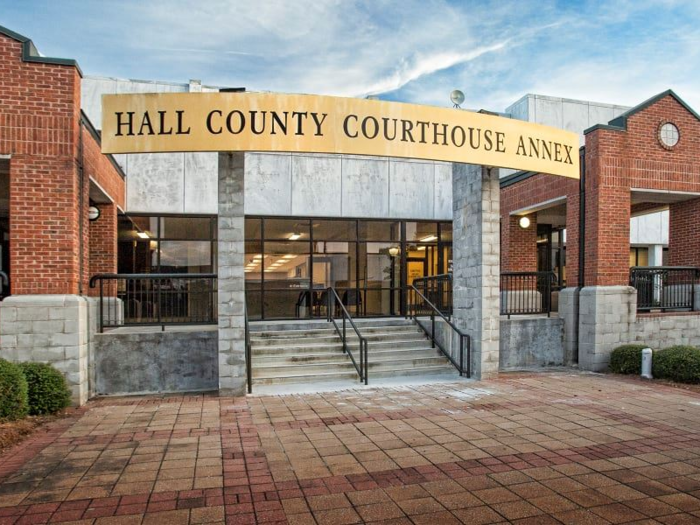
I will never forget witnessing a judge matter-of-factly stating in open court — although not in front of the jury — that he couldn't imagine that a person would knowingly sleep with an HIV-infected person, even if they were being treated.
The case involved a woman who was ultimately convicted of felony reckless conduct by an HIV-infected person.
I'm pretty sure that sort of statement would be swiftly condemned in other zip codes, given what we know about HIV transmission rates. But in that Superior Court courtroom, the declaration was seen as fairly benign.
Judges in my town rarely faced opposition in elections, and therefore could state their opinions pretty plainly. As for the most part could the county's all-Republican legislators, who rarely if ever faced a primary challenger.
Politicians are far more likely to be everyday, working people, not professional politicians. Not because they're conservative, but because of local rules.
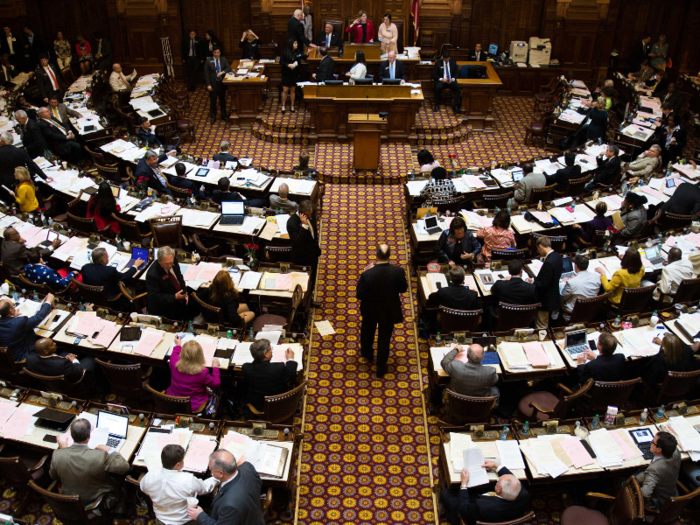
I had a fantastic dentist while I lived in Hall County. He also happened to be a Republican legislator.
Georgia, by state constitutional mandate, caps the number of days its legislators can serve. That means more people with day jobs end up in the Georgia house and senate than you typically see, since the representatives don't have to forfeit their careers to accommodate the time commitment.
There's a particular benefit to this that I think the Constitutional framers would approve of — there's little time for big changes. The vast majority of time in session instead has to be spent hammering out the budget.
Although, every so often, a highly controversial bill unrelated to the budget squeezes its way through. This year, that bill was a harsh, sweeping abortion bill.
Being pro-life is way more of an emotional stance than liberals may grasp
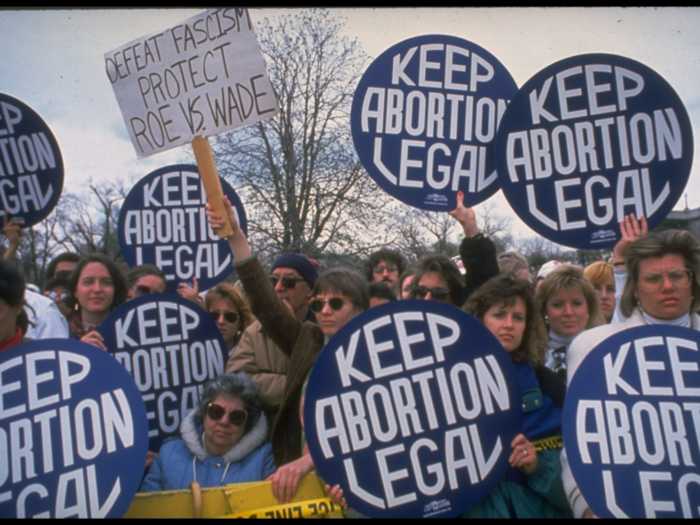
I was once assigned to cover a fundraiser for a pro-life group, as many local leaders and politicians would be in attendance.
At the end of the night, right before it was time to turn in donations, a clip from Steven Spielberg's well-known Holocaust movie "Schindler's List" was played as a way to stir emotions and bigger checks. Specifically, the scene was played where an anguished Schindler, filled with regret, wishes he had sold all of his belongings in order to fund saving more lives.
Every liberal I tell this story to finds that move in extremely bad taste, so much that they kind of miss my point of the story: To the people at that fundraiser, playing that clip wasn't in bad taste. Because to them, an abortion prevented is equivalent to a literal life saved.
So these days, if I'm ever in discussion about the issue, I like to emphasize the point that abortion rates tend to be the same regardless of its legality. Yes, I believe in the inherent right of a woman to be in control of her healthcare. But I learned that you won't convince a conservative that women have the inherent right to do what — in their minds — constitutes murder.
Confederate worship is real in the small-town South. But not always in the ways you might expect.
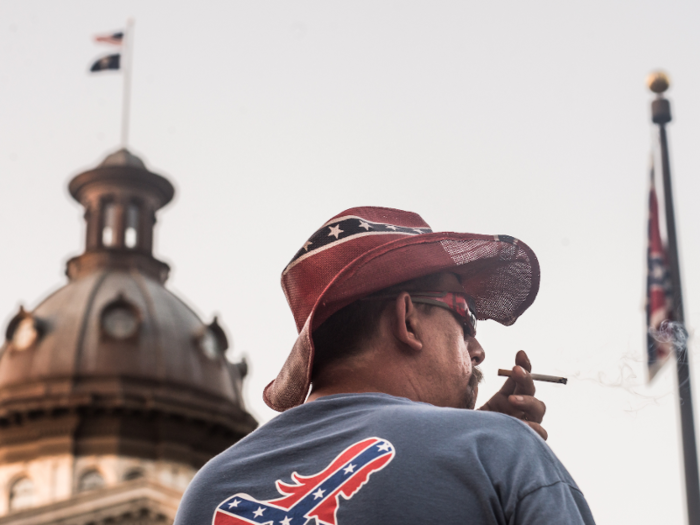
In Gainesville, there was a statue of a Confederate genera, General James Longstreet. Many buildings were also named after him, too.
Yet Longstreet's legacy was accepting Confederate defeat, favoring Reconstruction, and converting to the Republican Party after the Civil War.
For that very reason, his legacy was erased in much else of the South, save for his adopted hometown of Gainesville.
The idea of actually wanting to go on a trip to a big city was often met with confusion and mockery
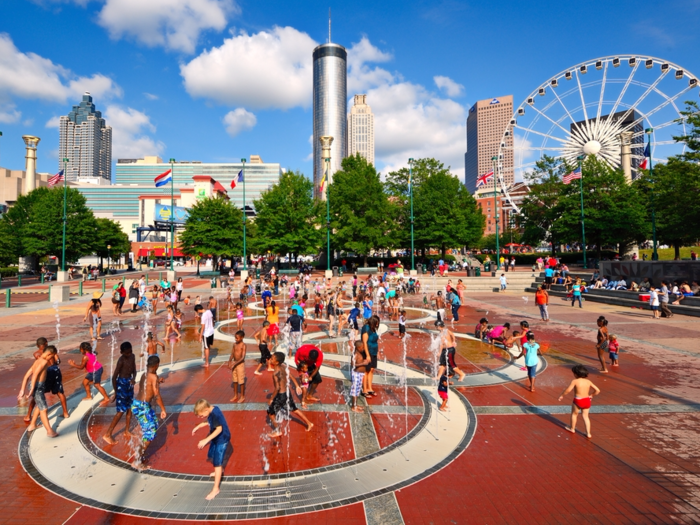
I learned that people in small towns don't feel FOMO over not living in a bustling, large city. Not in the least.
In fact, whenever I would mention that I was taking a trip to Atlanta, people would often ask: Why? And throw in qualifiers like, "Why? Do you need to expedite your passport?"
While I personally felt like I was constantly missing out by not being in such a vibrant cultural and commercial hub, for most folks, the idea of spending time in Atlanta was downright unappealing.
Finally, I learned this: Conservatives hate the media everywhere. Even their local media.
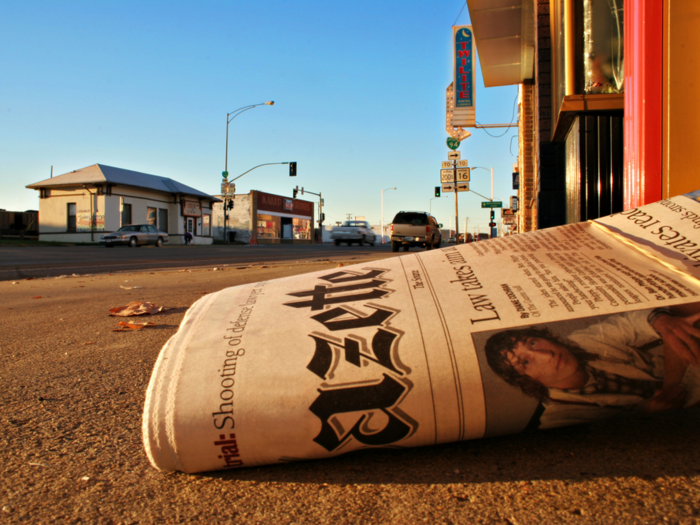
On my first day on the job, my coworkers and I had to evacuate the newspaper building because of a bomb threat accusing the newspaper of being overtly pro-Obama.
This by no means was true. But I did learn this truth that day: The liberal media myth is alive and well in small-town Georgia. Even when it comes to the local paper.
Popular Right Now
Popular Keywords
Advertisement